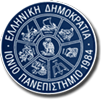Black Sea Port Cities - Interactive history, 1780s-1910s
The Black Sea Port Cities - Interactive history, 1780s-1910s is an interactive history of 24 port-cities (Varna, Burgas, Constantza, Braila, Galatz, Nikolayev, Odessa, Kherson, Eupatoria, Sebastopol, Theodosia, Kerch, Berdyansk, Mariupol, Taganrog, Rostov-on-Don, Novorossiysk, Batoum, Trabzon, Giresun, Samsun, Sinop, Istanbul – and Nezhyn as a "land port") written by more than 40 historians from Ukraine, Russia, Georgia, Turkey Bulgaria, Romania and Greece, specialists of the port-cities. It contains more than 1,500 templates – in a form of encyclopedic entries – of more than 2,500 pages for all port-cities, hundreds of photographs of peoples and places. A large number of the templates are based on primarily archival research and each template contains bibliography and archival sources. The aim of Port Cities - Interactive History is informative, that is, to make various aspects of the historical evolution of the port-cities known to a wider public and bring out the local and national bibliography and archival wealth. The goal is to have all templates in three languages, English, Russian and Greek. For each port-city there are templates in the following five categories: 1. Administration, 2. Urban landscape and Geography, 3. Culture and Community, 4. Economy and Infrastructure, 5. Statistics. The Statistics are based on the Black Sea Statistical series formed by the project and based on Russian, Romanian, Bulgarian, British and French statistics.
There once was a sea that had
Beaches of wheat and islands of bread.
Everything by it was fully sublime,
Not only the Porte, but also its wine.
Circasian beauties, Moldavian pines,
Ukrainian wheat, Anatolian mines
We had them all for us and to sell,
We were just short of qualified personnel.
Odessa, Batumi, Galati, Istanbul
Had their markets so cheap and so full
That tempted you Greeks to come with your fleet
To carry the timber, the wool or the wheat.
Should we be grateful or should we be mad?
I do not speak for the rest, but I am glad.
Constantine Ardeleanu,
Second Black Sea Conference,
Constantza, May/June 2014
Latest News
- Call for Papers - 7th International Conference of the Mediterranean Maritime History Network (Zadar, 25-29 May 2026)
- The loss of Professor Iryna Ponomaryova, 1958-2024
Iryna Ponomaryova was a great lady. A woman full of life, radiant, smiling and always well meaning; she had made her neighbors in Rethymno happy with her little yard full of colourful flowers. Iryna was an educated and productive scholar, a beautiful and dynamic woman, a very friendly and good colleague. She will be greatly missed.




